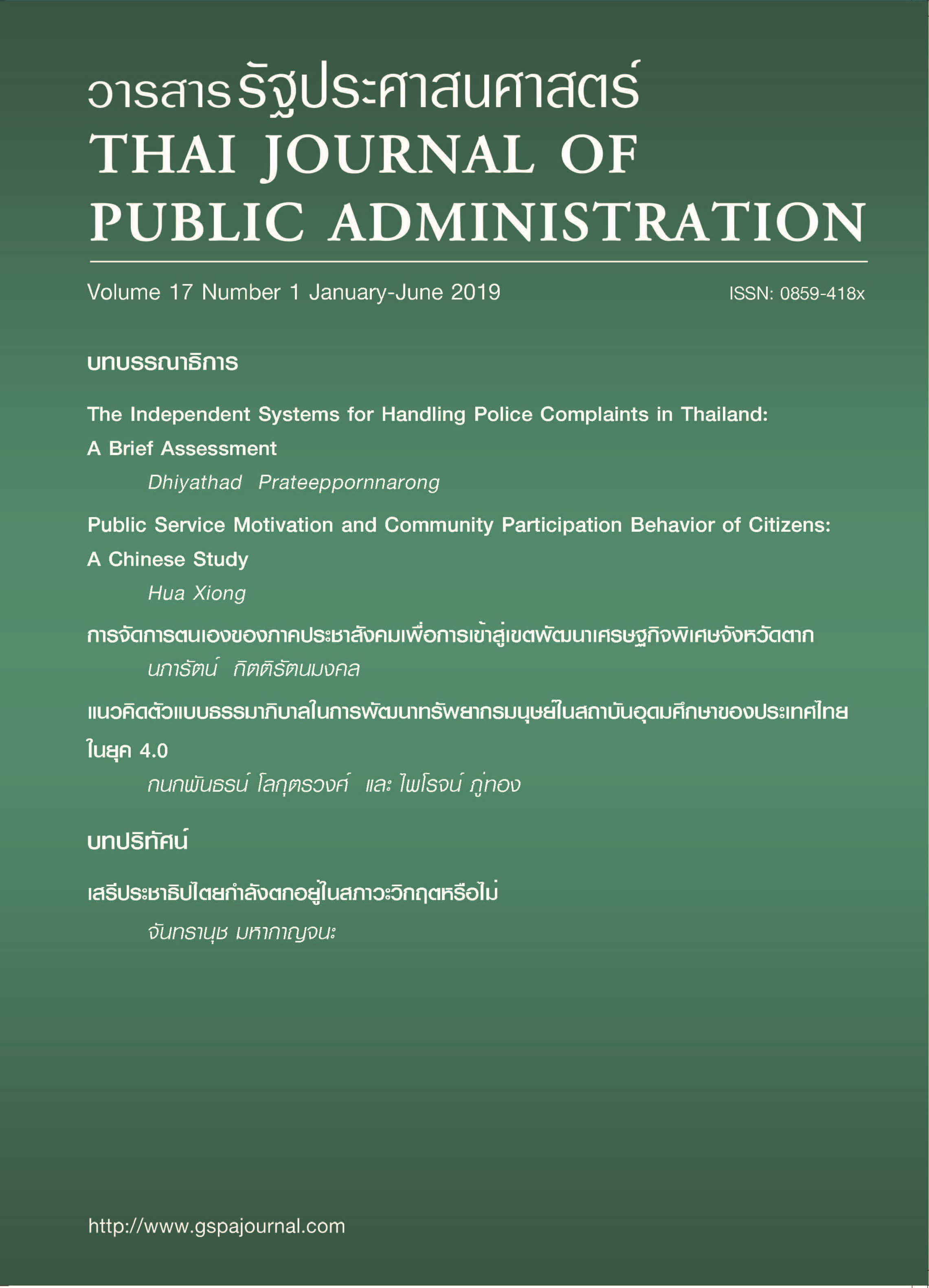Self-Management of Civil Society in Preparation for the Tak Special Economic Zone
Keywords:
Self-management, civil society, special economic zone policy, Tak ProvinceAbstract
The objectives of this research are: (1) to study the policy implementation of the Tak Special Economic Zone in Thailand, as well as its impact, (2) to study the background of civil society in Tak Province and self-management towards becoming a special economic zone, and (3) to propose sustainable self-management guidelines for civil society. A qualitative approach is used. Data were gathered from a literature review, in-depth interviews, and focus group discussion.
The special economic zone policy, known as the Tak Border Economic Zone, was initiated in 2004 by a business group in Mae Sot District. The policy was based on government-supported investment promotion. In 2014, the national government led by General Prayut Chan-Ocha launched a policy to establish special economic zones in 10 border provinces. Tak was selected to be a pilot province, leading to the development of infrastructure for economic expansion, as well as economic, social, and environmental change. To resolve cumulative issues arising from rapid change and expansion, and to prepare through self management for the establishment of the Tak Special Economic Zone, the Mae Sot community, the first civil society group in Tak Province, was established. The Mae Sot community’s employment of the principle of selfmanagement, together with the establishment of procedures for citizen participation, has turned out to be both practical and sustainable. Therefore, for sustainable self-management, civil society is recommended to work in cooperation with the government sector, other civil-society actors, the private sector, the business sector, and other related sectors, for the greater benefit of the local population.
References
Callahan, R. (2007). Governance: The collision of politics and cooperation. Public Administration Review, 67(2), 290-301.
Chandarasunti, P. (B.E.2525). Witi Haeng Tao. Bangkok: Kledthai.
Creighton, J. L. (2005). The Public Participation Handbook: Making Better Decisions Through Citizen Involvement. San Francisco, CA: Jossey-Bass A Wiley Imprint.
Denhardt, R. B., & Denhardt, J. V. (2000). The new public service: Serving rather than steering. Public Administration, 60(6), 549-559.
Laothamatas, A. (B.E.2555). Khan Krachai Umnat = Khan Kuen Umnat Su Khan Chadkhan Tonaeng Khong Chumchon Tongtin Lae Sungkom. Nonthaburi: Thailand Innovative Administration Consultancy Institute (TIA).
Olson, M. (1965). The Logic of Collective Action. London: Harvard University Press.
Prokati, K. (B.E.2550). Sitti Kong Bukkorn Sung Ruam Kan Pen Chumchon. Bangkok: Mr.Copy.
Széger, K., & Nosko, A. (2013). Active Citizenshship can Change Your Country for the Better. Retrieved from https://www.opensocietyfoundations.org/voices/active-citizenshipcan-change-your-country-better.
Tantisunthon, U. (B.E.2560). 20 Pee Saparn Mittrapap Thai-Myanmar Saparn Haeng Prawatsart 15 August B.E.2560. Bangkok: Bapit Printing.
Thongtakorn, C. & Niyomthai, S. (B.E.2561). Analysis of China’s 21st century silk road policy, Thai Journal of Public Administration, 16(2), 71-102.



